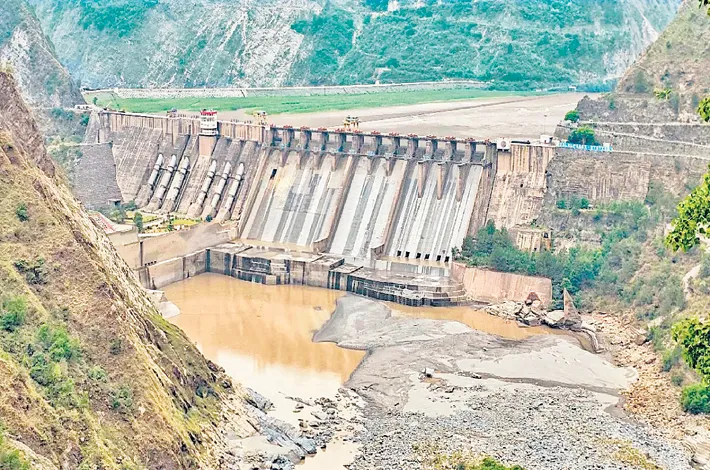Legal Nuances of India’s ‘Abeyance’ of the Indus Waters Treaty
17-05-2025 12:00:00 AM

The question arises if cross-border terrorism constitutes a fundamental change in circumstances. Pakistan may argue that the change occurred must be in direct relation to the treaty and the
Indus Waters
A day after the attack in Pahalgam, India announced that it shall hold the Indus Waters Treaty, 1960 (IWT) in “abeyance”, until Pakistan gives up promoting cross-border terrorism. The IWT is a treaty signed by India and Pakistan for sharing of the waters of the Indus and its tributaries.
According to Article II of the treaty, the Eastern rivers (Sutlej, Beas and Ravi) shall be available for the unrestricted use of India, while according to Article III, the Western rivers (Indus, Chenab and Jhelum) shall be available to Pakistan and India is obligated to let them flow. It is pertinent to note that India has used the word “Abeyance”. This has caused concern and raised several questions.
Vienna Convention on Law of Treaties
It may be said that the Vienna Convention on the Law of Treaties, 1969 (VCLT) is not applicable to IWT as India is not a signatory while Pakistan has signed but not ratified it. The International Court of Justice (ICJ) in various judgements held that VCLT is the codification of Customary International Law and the same is not subsumed into treaty law once a treaty has been signed but exist parallelly as held by the ICJ in Nicaragua v. United States.
In the North Sea Continental Shelf cases, the ICJ held that non-parties to the VCLT should also follow it. If argued that the IWT precedes the VCLT, the ICJ held that it still applies in the form of Customary International Law even if treaties have been signed preceding the VCLT, which is a source of law under Article 38 of the ICJ Statute.
Unilateral Suspension
To make a State liable for the actions of a group of persons for wrongful acts under State responsibility, according to the ICJ in Nicaragua v. United States, it must be proved that they were acting under the directions of that state and there must be effective control proven.
Though not easy to prove in this case, India can be confident that the same shall be done by its government. Coming to the word that “abeyance” being used, it is pertinent that it has been done instead of “suspension”, “termination” or “withdrawal”. There is no legal backing for the unilateral suspension in the IWT.
The only manner in which the treaty can be terminated is under Article XII, where a new treaty may be negotiated and this may be terminated in the new treaty. The word “abeyance” does not have legal backing as such neither in the IWT nor in the VCLT. According to the Black’s Law Dictionary, abeyance means, “temporary inactivity; suspension”.
It may be argued that “abeyance” is being used in the sense of “suspension”. For the same to be done unilaterally, the VCLT provides for it under exceptional circumstances under Articles 60 (Material Breach), 61 (Impossibility of Performance) and 62 (Fundamental Change in Circumstances).
In the instant case, it may be argued that unilateral withdrawal is being done under fundamental change of circumstances. The question arises if cross-border terrorism constitutes a fundamental change in circumstances. Pakistan may argue that the change occurred must be in direct relation to the treaty and the Indus Waters, whereas we may argue that the fundamental change is due to incessant threat to our national security which has disturbed the notion of co-operation, the basis for the IWT, VCLT or any treaty. It must be noted that the ICJ in the Gabčíkovo-Nagymaros Project case held that political changes do not constitute the basis for withdrawal of obligations from the treaty.
Countermeasures
Under the Draft Articles of the International Law Commission (ILC) on State Responsibility, counter-measures are provided. According to Malcom Shaw, a lawful measure taken by a state against another’s wrongful act is known as a counter-measure.
It may be argued that abeyance is a form of counter-measure against the recent terror attack. According to the ILC Commentary on the Draft Articles, the counter-measures taken should be directly connected to the wrongful act done. The direct connection of the terror act with the suspension of the treaty falls in the grey-area.
According to Judge Schwebel in the Gabčíkovo case, the ILC’s works may influence the ICJ. In the same case, the ICJ held that violation of general international law in other cases may justify taking counter-measures but not termination of the treaty. Proportionality is mentioned under Article 51 of the Draft Articles. A pertinent question is raised, whether stoppage of water is proportional to the terror act?
Jus Cogens
Pakistan is largely an agricultural economy and is highly dependent on Indus waters. Stoppage of water may affect it during sowing season. As reservoirs in India do not have the capacity to hold large quantities water for long, eventually water would necessarily be left to flow which may cause flooding, effecting environment adversely in Pakistan.
In the Nuclear Weapons case, the ICJ held that protection of environment is an obligation of the States. “Abeyance” from the IWT by India creates hindrance to water sharing. In the River Oder case, the Permanent Court of International Justice said preferential privilege of one riparian state in the legal rights over rivers is excluded.
Both environment protection and water sharing are part of Customary International Law and may be argued to be a part of peremptory norms of General International Law (Jus Cogens). Jus Cogens are the norms that States cannot derogate and by putting the IWT in “abeyance” and by actions like stoppage of water, it would mean going against these norms.
Conclusion
Terrorism, as highlighted in UN Security Council Resolution 2249, is a major threat to global peace and security and must be condemned. The appropriate response is to counter the threat effectively, not to suspend agreements like the Indus Waters Treaty (IWT), which only escalates tensions. India’s decision to put the IWT on hold prompted Pakistan to suspend the 1972 Shimla Agreement, worsening the situation.
Water is a vital resource, and politicizing it harms ordinary people. The IWT is one of the most successful treaties between India and Pakistan, and its collapse would be detrimental to both nations. Additionally, since many rivers, including the Indus, originate outside India, there’s a risk if China controls their flow in the future. India’s actions should uphold international law to maintain its reputation as a law-abiding nation. Both countries should resolve disputes diplomatically, fostering goodwill and friendship.
(Palepu Krishna Vijay is pursuing law at Damodaram Sanjivayya National Law University, Visakhapatnam)








